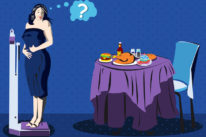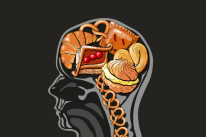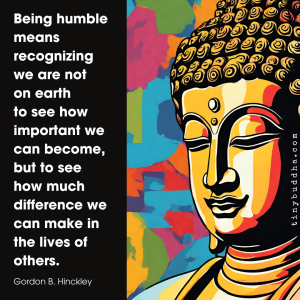
“It is better to take many small steps in the right direction than to make a great leap forward only to stumble backward.” ~Proverb
You wouldn’t believe it now, but in my college days I did my fair share of crash diets.
The craziest was the one where I tried (and failed) to eat nothing but oranges for nine days. My roommate’s ex’s dad was a veterinarian, and after the good doctor lost fifteen pounds on the same high vitamin C, high fiber, non-sense diet, I decided to try it for myself.
It was based on a specific number of daily oranges to keep your metabolism and energy levels up. Orange juice was off limits, but I could season the slices with my favorite chili powder to mix it up a bit.
I was off to a good start and enjoying the attention from friends who couldn’t hide their disbelief or their laughter.
My resolve crumbled after sundown on the third day. No longer hungry, I had eight oranges to plow through before calling it a night. Instead, I ran to the cafeteria for chicken salad, and that was the end of the infamous orange diet.
Crash dieting on oranges did nothing for my waistline, but it satisfied a deeper need. It was never about my weight or the way I looked. Crash dieting was fun; it broke the routine and more importantly, it was a distraction.
My dad had just been diagnosed with an aggressive type of brain cancer, and these food fixations kept my thoughts on something that I could control. Instead of worrying about survival rates, I obsessed over the jeans I couldn’t fit into anymore, or how many hours I had to put in at the gym.
For years my weight yo-yoed, stabilizing only after Dad passed away. At that point I was no longer binge eating to silence my anxiety, or dieting to lose a few pounds before putting them on again. It took two years for the weight to come off but it never returned.
My relationship with food is still a work in progress, very much linked to my mental and emotional state of mind. Based on these experiences, I have opted for a more balanced approach to health and well-being.
It’s about being patient, mindful of our impulses, and compassionate in our self-talk. The word “diet” has no place in my vocabulary. Rather, I take the middle road, eating almost anything in moderation. A few thoughts to consider include:
1. Is it hunger you’re feeding, or something else?
Dieting is useless unless we deal with the emotional and psychological issues that lie beneath. Anxiety over my dad’s illness fuelled my crash diets and binge eating. Think about the need that is being filled.
Are you bored, stressed, or just looking for love in a chocolate bar? Is there a healthier way to satisfy that need? Knowing yourself is the first step; this is where a healthy dose of introspection will come in handy.
There is plenty of reading material on emotional eating. My favorite so far is Doreen Virtue’s book, Constant Craving.
2. Focus on maintenance instead of weight loss.
The weight came off when I began eating as if I were already at my goal weight. That slice of chocolate cake was no longer the enemy. I could treat myself in moderation, so long as I listened to my body and stopped when I was full.
This approach enabled me to make peace with my appetite. It also made exercise fun again, because I went to the gym when I wanted to, no guilt trips included.
Pushing ourselves at the gym may be a popular option, but finding an activity that we genuinely enjoy makes staying fit so much easier. Whether it’s kickboxing classes, jogging, or ballroom dancing, make sure you have fun and get those sessions in regularly!
3. Educate, love, and accept yourself fully.
Buddhist philosophy teaches that ignorance, attachment, and aversion are the three downfalls of human nature. All too often we fall victim to the illusions of the mind, especially where loving and accepting our physical body is concerned.
Taken to the extreme, wanting to lose weight because we dislike our current size can involve both attachment to an unattainable ideal and hatred of what is. It’s time we release the need to be perfect, love and accept ourselves for who we are, and make informed food and lifestyle choices.
4. Follow the middle road.
In my previous life as a crash dieter, my food choices were anything but moderate. Rich and creamy desserts may not have been my friends, but that didn’t keep me away. Trying to avoid that chocolate cake only made it so much harder.
Instead of avoiding certain foods because of their perceived sugar, fat, or carb contents, let’s think about the big picture. No single food choice is responsible for our health and well-being, rather it’s the combination of foods we eat, and how they are processed, that makes a difference over time.
This is where we can use knowledge and patience to our advantage, consulting with a qualified nutritionist to develop a healthy and satisfying nutrition plan that can last much longer than a simple New Year’s Resolution or a crash diet.
5. There’s no time like the present!
Start today! Don’t put your new life off to Monday, January 1st, or any other mental milestone. And remember that you are not sacrificing anything. Think of this approach as spicing up your meals with a dash of conscious moderation.
Woman in the park image via Shutterstock
About Regina Chouza
Can anyone learn to channel healing and shift his or her life in a new direction? Of course! This startling discovery led Regina to become a qualified Healer, blogger, and teacher. Her first book, A Personal Guide to Self-Healing, Cancer & Love, is available on Amazon. Visit diaryofapsychichealer.com for details or tweet a question @reginachouza with the #TweetingAngels hashtag.













 Though I run this site, it is not mine. It's ours. It's not about me. It's about us. Your stories and your wisdom are just as meaningful as mine.
Though I run this site, it is not mine. It's ours. It's not about me. It's about us. Your stories and your wisdom are just as meaningful as mine.